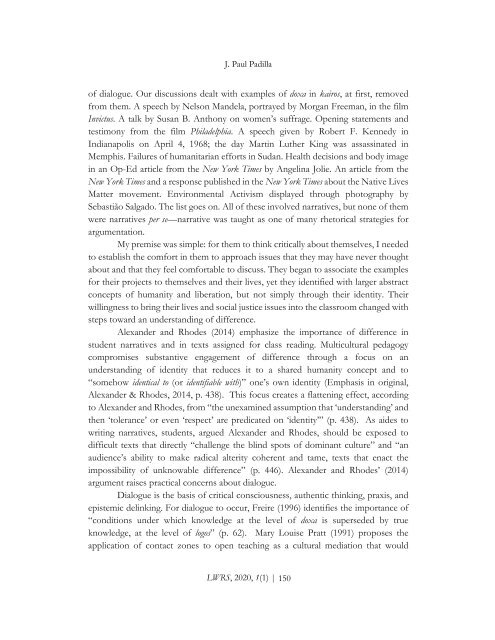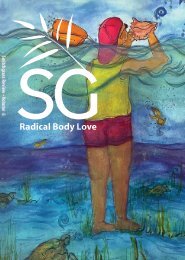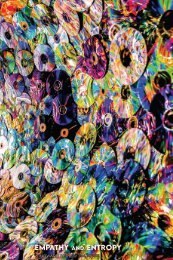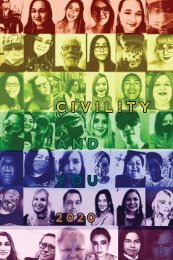LWRS June 2020 Volume 1, Issue 1
Inaugural Issue co-edited by Yndalecio Isaac Hinojosa and Isabel Baca
Inaugural Issue co-edited by Yndalecio Isaac Hinojosa and Isabel Baca
Create successful ePaper yourself
Turn your PDF publications into a flip-book with our unique Google optimized e-Paper software.
J. Paul Padilla<br />
of dialogue. Our discussions dealt with examples of doxa in kairos, at first, removed<br />
from them. A speech by Nelson Mandela, portrayed by Morgan Freeman, in the film<br />
Invictus. A talk by Susan B. Anthony on women’s suffrage. Opening statements and<br />
testimony from the film Philadelphia. A speech given by Robert F. Kennedy in<br />
Indianapolis on April 4, 1968; the day Martin Luther King was assassinated in<br />
Memphis. Failures of humanitarian efforts in Sudan. Health decisions and body image<br />
in an Op-Ed article from the New York Times by Angelina Jolie. An article from the<br />
New York Times and a response published in the New York Times about the Native Lives<br />
Matter movement. Environmental Activism displayed through photography by<br />
Sebastião Salgado. The list goes on. All of these involved narratives, but none of them<br />
were narratives per se—narrative was taught as one of many rhetorical strategies for<br />
argumentation.<br />
My premise was simple: for them to think critically about themselves, I needed<br />
to establish the comfort in them to approach issues that they may have never thought<br />
about and that they feel comfortable to discuss. They began to associate the examples<br />
for their projects to themselves and their lives, yet they identified with larger abstract<br />
concepts of humanity and liberation, but not simply through their identity. Their<br />
willingness to bring their lives and social justice issues into the classroom changed with<br />
steps toward an understanding of difference.<br />
Alexander and Rhodes (2014) emphasize the importance of difference in<br />
student narratives and in texts assigned for class reading. Multicultural pedagogy<br />
compromises substantive engagement of difference through a focus on an<br />
understanding of identity that reduces it to a shared humanity concept and to<br />
“somehow identical to (or identifiable with)” one’s own identity (Emphasis in original,<br />
Alexander & Rhodes, 2014, p. 438). This focus creates a flattening effect, according<br />
to Alexander and Rhodes, from “the unexamined assumption that ‘understanding’ and<br />
then ‘tolerance’ or even ‘respect’ are predicated on ‘identity’” (p. 438). As aides to<br />
writing narratives, students, argued Alexander and Rhodes, should be exposed to<br />
difficult texts that directly “challenge the blind spots of dominant culture” and “an<br />
audience’s ability to make radical alterity coherent and tame, texts that enact the<br />
impossibility of unknowable difference” (p. 446). Alexander and Rhodes’ (2014)<br />
argument raises practical concerns about dialogue.<br />
Dialogue is the basis of critical consciousness, authentic thinking, praxis, and<br />
epistemic delinking. For dialogue to occur, Freire (1996) identifies the importance of<br />
“conditions under which knowledge at the level of doxa is superseded by true<br />
knowledge, at the level of logos” (p. 62). Mary Louise Pratt (1991) proposes the<br />
application of contact zones to open teaching as a cultural mediation that would<br />
<strong>LWRS</strong>, <strong>2020</strong>, 1(1) | 150





